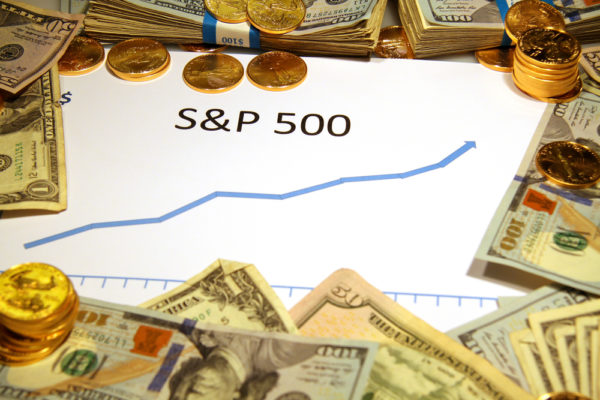Time and time again I have had many friends and family members approach me for investing advice. They are always hoping for a magical stock tip or fund that will bring them quick, unlimited wealth and success. They ask me because I have been successful at investing over the last few decades and have managed to build a lifestyle that is supported by it. I get asked so often that in 2012, I wrote a short article stating the same advice I routinely give. As always, it fell on deaf ears because it’s not exciting and not exactly what people want to hear.
My road map is not sexy or complicated – some find it boring and many seasoned investors find it irrelevant because it seems too simple. With the huge amount of psychology involved with investing, plenty of outdated information, and a slew of biased financial data, it’s easy to see how the part-time investor can get financially paralyzed. Some new traders think they can find a quick scheme if they search long enough. As a new trader in the in the “hot tip” era of the 80’s and 90’s I, too, thought I could be like Gordon Gekko and get an elusive stock tip without evaluating the risk. I rode that wave, got to experience the rush, and felt stupid for losing big. Just like everyone else, I thought I could time the market perfectly. I thought I could sell at just the right time. I recently argued with a neighbor about why a trailing loss strategy is ineffective especially on an etf based fund. The discussion went on too long as I tried to describe that any kind of stop loss trade or trailing sale is purely an emotional trade and according to proven statistics, you will lose money. You simply can’t time a market. You can’t time when it’s best to sell or when it’s best to buy back in again. Most big moves happen in one to three days within a market year. We still argued these details until I explained what the tax ramification would be on a short or long term sale of that financial amount and how it would impact his overall profits. Once he wrapped his head around the tax implication, the discussion topic changed quickly. Statistically, most trades placed will lose money because most trades are emotional. People often think they can time a perfect top or bottom of the market. This is false. They might have a run of pure luck, but they can’t replicate it over time. Asian gamblers believe you win because you are lucky and you lose because you are unlucky. They do not believe in statistics. This is why Macau far out profits Las Vegas. The gamblers in Macau hope that luck will eventually land in their lap. Unfortunately, the more time you spend in a casino the higher the odds are of you losing. Trading and investing this way is akin to the Vegas gambler who is confident he will beat the system despite the odds being stacked against him. Again there are people that figure out a way to beat this system or prevail but you’re not smart enough and you’re probably not willing to go to jail. The people that manage to do this are .000001% of the population and usually score higher on the IQ/EQ scale than most of the population. Here’s hard truth number one: Nobody can time a market
The Professional Myth….
Maybe a professional can time a market. Maybe their access to information and years of expertise will put you on the right path, right? False! Financial Advisors offer “professional advice” that is almost always wrong. Their advice is usually backed by bias in favor of their products. Their products have fees and built in expenses. Think about the impact of these expenses in a future value scenario. Also, consider that your Financial Advisor needs this role in your life. To remain relevant, they will actively manage your account which usually involves frequent trading. Frequent buying and selling also means potential tax ramifications.
In the world of financial services there are ways to discreetly make commissions that casual investors don’t realize. Instead of truly building your wealth, you are often being pushed into poor performance and over diversification. The only good financial advisor is one that works on a reasonable fixed fee and agrees to not take extra commissions of any sort. You won’t easily find these people in the industry. Hedge fund managers take 2-20 which is a 2% fee off the top and 20% of whatever amount they make or lose every year. When they lose money or break even, they still get their 2%. The 2% may not seem like a lot to most players but if I showed you the impact of compounding, specifically the lost future value of those fees, your jaw would drop. Goldman Sachs will offer you private wealth management if you bring them over 10 million. They will charge you a hefty half percent or higher fee regardless of weather they make or lose your money. They will put your money into highly complex hedged instruments and overly diversified funds that will limit gain and minimize loss but will sneakily increase your expenses. They will sell this to you under the guise of wealth protection. Why do they offer you these instruments? Because they make big money on them over time.
I almost took a job with a major financial planning firm in the 1990’s. I got the job after several interviews but quickly realized I was going to have to sell all my clients terrible performing mutual funds with huge expense ratios. At the time, this company owned a fund company so to make any money for yourself you were forced to sell those products over better funds or etfs that were available. They were hiring fresh college graduates and anyone off the street to go out and push pooy performing and overly expensive financial products to their friends and family. I declined the job and never looked back. The traditional financial advisor circus is a remnant of the past and is horribly unnecessary and borderline predatory in today’s world of information. Hard truth number two: You need to manage your own money or find a Financial Advisor who works on a fixed fee, no commission basis.
Taxes make up a huge part of investing. A yearly tax burden can appear small, but its future compounded value grows quickly. A 28% hit to your gains on year one will have a huge impact on your profits for year ten. The 28% tax, if saved would have been able to compound and grow annually over the decade. Many believe the best way to avoid taxes on your investing is to invest in a tax deferred account like a 401k. These accounts tie up your money and limit contributions. These tax deferred accounts can negatively impact your estate. If not meticulously crafted, the beneficiaries of the tax deferred accounts can override those listed on a will. You can trade without high turnover, keep your tax impact very low, and maintain full
control of your money. Remember that even in a 401k, there are taxes due when a withdrawal is made – even if this occurs after retirement age.
4 Simple Rules……..
My method of investing is all about minimal risk and maximum sustained ROI (Return on Investment) year after year. It comes down to following these 4 simple rules:
1) Minimize risk 2) Minimize expenses 3) Minimize tax impact 4) Minimize emotional trades
Minimizing Risk: How do you minimize risk? It’s actually easy. The key word here is diversification. Most individual investors don’t think about risk or how it relates to reward and long term performance. In general, if you take a big risk you need a big payout and vice versa. You need to wrap your head around how risky an investment is and if you can afford to lose money. A good benchmark, although not always fully accurate, is the Sharpe ratio. It’s a risk adjusted performance indicator based on standard deviation and excess return, 1.0 being equal risk to reward, anything over 1.0 is more reward to risk or a greater payout in time. A fund or stock that has a higher than 1.0 sharpe ratio is a better deal than one below 1.0. A good example is my favorite etf VOO which follows the S&P 500 has a sharpe ratio of 1.09 vs .90 of the large blend group average. It’s a good benchmark to begin evaluating risk and something to keep in mind. I like to get an overall feel of risk because it’s a good indicator of how you will perform over time and if it is worthwhile.
Minimize Expense: This one is self explanatory, don’t pay any type of exorbitant fee or expense ratio for an active or passively managed fund. Risk is risk and reward will always be available at almost zero percent. Most etfs that mimic indices that are not actively managed should have a less than .15 % expense ratio. If you’re paying more than that for any investment, you are throwing money away. Many will argue with me, but the statistics show that over a fifteen to twenty year time frame, a simple investment in the S&P 500 will end up beating over 90% of all investors, both individual and professional. People always tell me they can beat the S&P and I always say great, do it and make sure you accurately log your performance. The percentage of people that can actually beat the market (S&P 500) consistently over several years or longer is rare. They could make one great investment, get a 500% return once, and then over the following fifteen years, lump that one lucky shot with the less successful trades to show a 15% yearly ROI. This kind of a scenario happens with a huge amount of risk and a whole lot of luck. I’ll admit it, most of the big hits I’ve made were due to luck and were not a direct function of me being some genius. I have been investing since I was 16 years old and the one thing I learned is that intelligence or hard work does not correlate to high returns. Patience, the ability to learn, and a fundamental understanding of the rules I list above are the only things that will put you ahead of the pack.
Minimize Tax Impact: Back in the 90’s when I was swing trading, I thought I was a genius and was making crazy money. I never once looked at my after tax earnings. In the state of Massachusetts and in my tax bracket, I was paying about 50% of whatever I made yearly in taxes to federal, state, and various local taxes. An avoided tax burden of $120,000.00 compounded conservatively over ten years could be like taking a $250,000.00 loss. Money lost today is less compounded gains for your future. Once you fully comprehend this concept, your investing style will change and it will also change the way you look at loss. So, how do we minimize tax impact? First, you need to understand your tax situation. Fully understanding what tax impact any trade will incur before making it is the first step to managing this ultimate expense. Invest in low turnover funds. The S&P 500 and other index ETF’s have very low turnover (meaning there are not many trades occurring within in the fund). This minimizes your tax implications since you would be taxed on any gains that are created by these trades. The S&P 500 ETF also provides a hefty 1.8% dividend which is taxed at the lowest rate as dividend income. If you’re married, live in a state without income tax, and are within a certain income bracket you can make long term or dividend gains of up to $90,000.00 without paying a penny of tax on those gains. Think of this as if you have a job making $150,000.00 a year and after taxes you are left with $89,000.00. Awareness of your tax situation and engineering your investment income to fall into the long term designation, within range of your exemption, can really increase the after tax return of your investments. Tracking your losses can also be useful when you need to sell winners to make cash or reallocate funds. You can sell gains up to the amount of your losses without paying any taxes. These small details add up to huge savings which translate to future gains. The money you didn’t otherwise pay in taxes is going to compound and increase. By understanding your performance in terms of after tax gains, your method if investing and return on investment will greatly improve.
Minimize emotional trades: This rule that is based more on experience than on data and statistics. Although there is data to support that most trades made within the market lead to losses (more than half) there is a fundamental human condition that will throw us against a wall and destroy everything we have worked for. Fear. Fear is used against us by advertisers, by financial advisors, and it also resides in our hearts during tough markets. The best way to combat this fear element is to run directly into the fire. When people announce that markets will collapse, the Euro is going to collapse, the Pound will go to zero, and we are all going to die – you need to run into the fire. During these hardships or down markets the people that succeed are the ones that are buying. They are dollar cost averaging into the market when it is at its lowest. They are buying value. They are betting on stocks that have been unfairly sold off or devalued. Some of the best trades I made on individual stocks were when a group of highly paid analysts downgraded a perfectly good technology company. Like lemmings, after one big bank analyst downgrades, the others quickly follow suit. The stock gets oversold and a tremendous value becomes apparent to those who know that analysts don’t have a crystal ball to the financial world.
When I am asked, “What stock should buy, if I were only to buy one thing right now?” I simply say S&P 500 index or VOO (a Vanguard S&P index with a .04% expense ratio). Another
favorite etf is VTI which invests in all of the US markets with a similar expense ratio. Both these funds have have 1.9% and 1.6% dividend yield. This is great for the amount of highly diversified low risk high reward money you will be making. It is not sexy, it is not diversified over asset classes, but over a period of roughly ten years you are going to make around 10% a year (plus or minus certain years). In my younger years I would buy and hold a variety of technology and biomed companies thinking I could beat the S&P 500 index. Once I started to honestly track my portfolio gains and tax impact I realized I was a hamster running on a treadmill. I was making crazy trades and still not beating the S&P 500 over a two year period. After contending with trading fees, taxes, and mutual fund expense ratios my overall performance was dismal. It took a long time for me to come to terms with this painful reality.
People love to say that they killed it in one year making $x amount of money. I stop them and ask what their percentage gain for the year was or ROI. If they can answer with an actual number they usually are underperforming the S&P 500 performance of that year. A perfect example was a friend bragging about a 14% return he acquired a few years back when the S&P actually made 20% that year. That is not a bad return if you take little to no risk but I assume his risk was much higher than the S&P 500, and his return was less than stellar. Today I primarily focus on how I perform compared to the S&P 500. On a specific day, quarter, or yearly, if my portfolio beats the S&P I am ecstatic, even on a down day – meaning if I lose less money than the S&P…yes it’s a good day. By changing this metric I have realized that my goal is not to make a quick hit but to maximize my returns by taking the least amount of risk. Making money by not losing money is the key here. Find investments that have the highest return in terms of lowest risk. My portfolio these days consists of two main etfs, two income reits, and two oil companies. I am able to live a comfortable life off the income of these investments with limited risk compared to other financial opportunities.
When I am asked for the magical stock tip, I tell people to buy the S&P 500 index – specifically VOO. People stand perplexed and continue asking. They want me to give them some unknown individual stock that is a sure thing. Nobody wants to hear such a simple strategy. They reword the question hoping for a different answer because the tip I give is boring and does not sit well with what they believe or what they have been taught.
Taking advantage of these 4 rules will put you in the driver’s seat. 1) Minimize risk by sticking to diversified low cost etfs like VOO and VTI or whatever low fee ETFs are a good bet in today’s market. 2) Minimize expenses by not overbuying securities or funds that over diversify. Stick to low cost ETFs that have less than .10% expenses and never pay fees or expenses like ridiculous hedge funds. 3) Stick to an ETF or fund with low turnover so you don’t pay exorbitant taxes or lose future compounded earnings. 4) Minimize emotional trading. Buy and hold and continually dollar cost average without the fear that the whole financial world will come to an end. The harsh reality in a calamity of this magnitude is that there will be nothing left. If you really want to be prepared and invest for worst case scenarios, you need to learn farming and how to live off the grid.
Get Humble…….. Get Rich
The best way I can explain this investment philosophy is to have you look at an S&P 500 graph from the 1920’s to today. You see the ups and downs but the overall trend of the line is moving up. That is what I am banking on – the future of the USA, the success and growth of us as a people and country. Although we may see ups and down with time, we will see a strong return and dividend income that we don’t have to gamble on. I sometimes invest in European ETFs, technology ETFs or even emerging markets. It’s whatever makes sense for that point in time.
Remember these simple truths: You’re not as good of an investor as you think you are and nobody can time a market. No applied Mathematics or statistic degrees will help. You must bet on the overall long term trend of the appreciating American business or other value investment to gain a steady, low risk, high payout return. If I started investing this way from the beginning, my portfolio would be three times the amount that it is today. Hard lessons of loss through needless risk made me realize that I’m not as smart as I thought. Learn from my mistake
Your ego will tell you that you can beat the market. If you track your performance honestly, you will see after 3-5 years that you are lying to yourself. I’m not saying to solely invest in the S&P 500. There are plenty of other low cost indexes out there that provide great, low risk ROI. Feel free to allocate over different classes and then compare to your benchmark index. I find that over time the S&P will outperform other asset class etfs. It is boring and it sounds too easy, but it’s the way to get successful returns without taking risks. Beating out so many other investors is just the icing on the cake – good luck and happy investing.







Sometimes doing nothing actually takes tremendous patience and discipline…..”folks, its harder than it looks”
Millennials heed this advice….so many Baby Boomers should have and now it is too late. Especially don’t ignore the $ COST AVERAGING advice, a good way to invest small amounts of money on a regular basis when you don’t have a lot. Broader and steadier is Vanguard’s Total Stock Market Portfolio with an approx. 2% dividend that can be reinvested. Although it may not grow as quickly, it is less volatile than the S & P 500 since it tracks the entire U.S. economy.